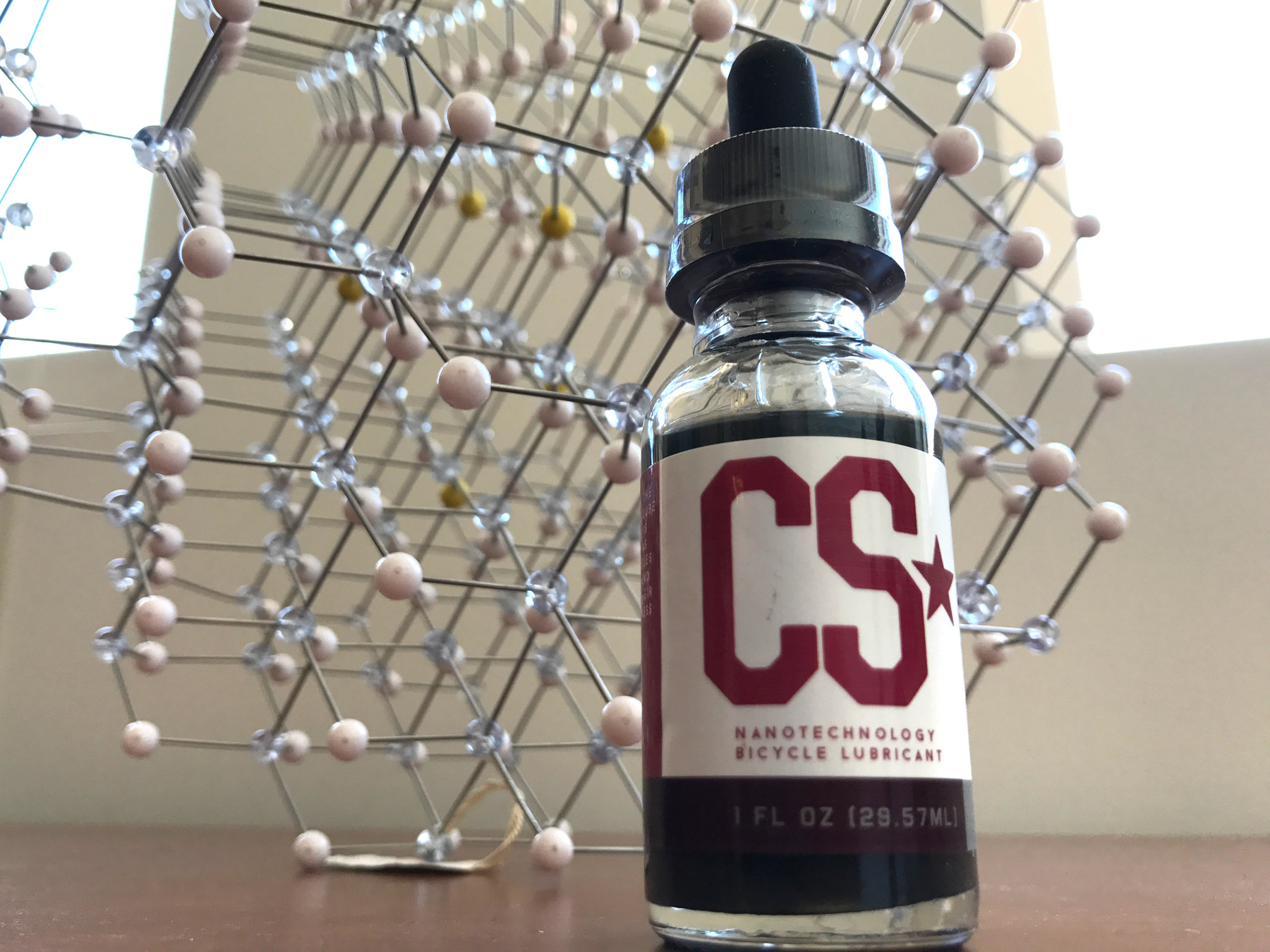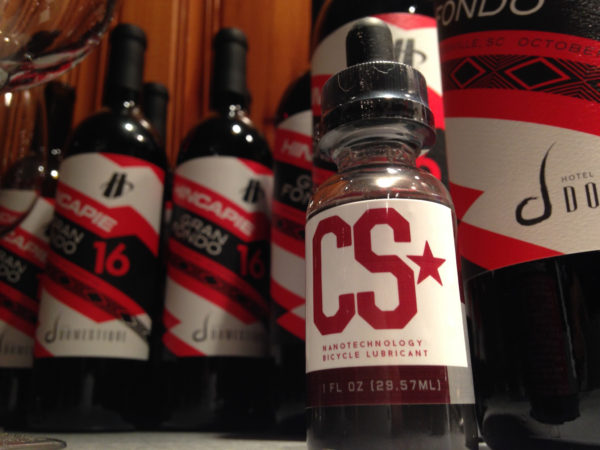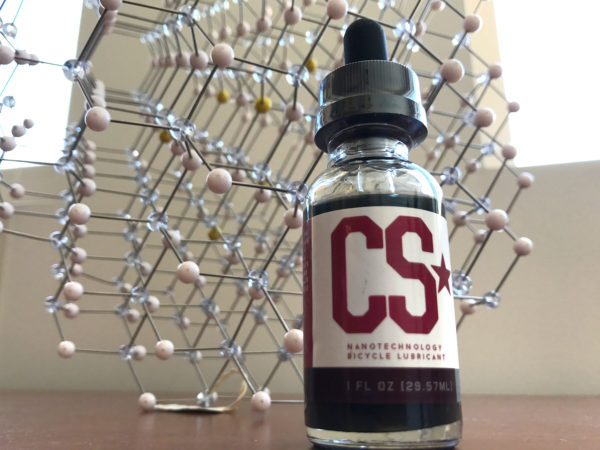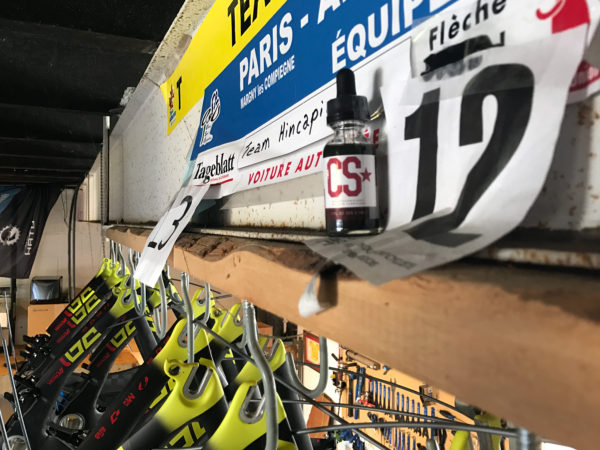Yes, lasers and nanotech. Fresh new lube maker Cycle Star Nanotech just popped up out of public:private research partnership with scientists at North Carolina State. The team have been developing a new technology to create super hard nano- & micro-sized balls (carbon, graphene, sapphire & more) at such small sizes and precise tolerances that they can be used to lubricate how two metal surfaces move across each other. Basically they add these tiny particles to a lightweight oil carrier to get them on the chain, and you end up with long-lasting, decreased friction without the need for complicated application. It sounds a bit like ‘snake oil’ (those were Cycle Star’s words, in fact), but the performance has been so promising that they’ve signed on UCI Continental team Holowesko|Citadel pb Hincapie Racing after a successful race-winning trial last season, and have been building some impressive testimonials. Slip bast the break for some more details and how to slide it onto your chain…
Cycle Star’s first and currently only product is a small 10z/30ml bottle of Nanotech Chain Lubricant that will set you back $40. Inside that little bottle is a simple synthetic oil carrying those laser-crafted nano and micro particles that claim to outlast most other lubricants, and at even lower friction than the recent crop of super treated nanoparticle & waxed chains. Plus, it is applied more like a standard chain lube, although in a much smaller quantity than you are used to. So no need to take the chain off or use some complicated heated or ultrasonic application method.
The Nanotech Chain Lubricant promises to last for a minimum 200-300 miles (320-480km) of regular road or trail riding on a single application, with claims of silent smooth operation for up to 1000mi (1600km) under ideal conditions. I’m personally a fan of the clean, long running of wax-type treatments, so would welcome similar or even better performance from an easier application.
The laser processes used to create these surface hardening, polishing, and gap-filling nano- and micro-particles themselves are covered by global patents, so you aren’t likely to run into anyone else using the same tech anytime soon. The reason it even made it into the cycling sphere at all was that a member on NC State’s research board was actually a former Jr Worlds team rider and suggested the application. Now industry insiders like Felt founder Jim Felt, George Hincapie, and his development team’s sports director Thomas Craven and mechanics have been sufficiently impressed that they are using Cycle Star and espousing its smooth running benefits in both wet & dry racing.
The tech behind it all sounds plausible, even if we are a bit skeptical of a lube that you don’t need much of and works like magic. But if it does work, that $40 bottle should last for a very long, smooth spinning time. We’ll see about trying to get ahold of a bottle ourselves and let you know what we think. Until then, feel free to try it our yourself, and let us know in the comments.




